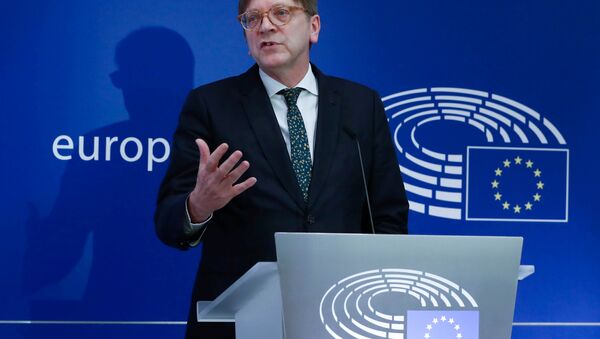Speaking to the Telegraph, the EU Parliament's chief Brexit negotiator Guy Verhofstadt stated that Theresa May's Thursday visit to Poland is a clear "test" of the UK's allegiance to European values, referring to the on-going confrontation between the conservative government in Warsaw and the more liberal EU members.
READ MORE: Brexit: EU Workers in London Differ on 'Second-Class Citizens' Verhofstadt Claim
The ruling Law and Justice government has recently come under fire from France and Germany for a controversial string of reforms, tightening the state's control over the judiciary and media.
"The current Polish government is guilty of backsliding on the rule of law and undermining European democratic values," Verhofstadt stated.
The EU negotiator pointed to the fact that Theresa May affirmed that she is "unconditionally committed" to defend the "values of liberty, democracy, human rights and the rule of law" in her landmark Florence speech last September and tasked her to prove this commitment.
"I hope Theresa May will firmly raise this issue in Warsaw. This visit is an important first test of the UK's pledge to defend European liberal democratic values, as we move forward together to build a strong security partnership," he said.
This Wednesday, the European Commission suggested that Article 7 of the Lisbon Treaty should be triggered, authorizing a wave of sanctions against Poland.
Verhofstadt's rhetoric comes as an unwelcome surprise to Theresa May, who, along with Foreign Secretary Boris Johnson and Chancellor of the Exchequer Philip Hammond will pay a visit to Warsaw later this week to attend the annual UK-Poland Summit.
READ MORE: Poland Likely to Evade EU Sanctions With Support of Hungary, UK, Czech Republic
The Summit was organized last year as part of the Conservative Government's post-Brexit strategy to secure the support of its "resolute and strategic ally" in the negotiations with the EU.
Prince William and Princess Kate also graced Poland with their visit this summer to highlight the importance of bilateral relationships.




